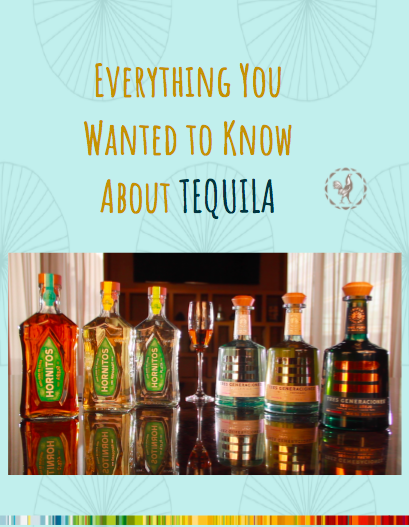
There are many questions that we have about this Mexican drink and there area also many mistaken ideas regarding it, so we've decided to give an answer to the frequently asked questions that people usually have, to clear some ideas out. Here we go!
Designation of Origin
What is it?
It's a tool that allows us to protect certain products that are made within a specific geographic area. This area has specific characteristics, such as the culture and the specific properties of the soil that are needed to grow the raw material.
When was the Designation of origin of Tequila given?
The designation of origin was given to Tequila in 1974. Mr. Francisco Javier Sauza, third generation of the Sauza family, played an important role in getting this designation.
Mr. Francisco Javier made a trip abroad in which he found a drink called "Tequila" and he was so annoyed by this situation that, as soon as he came back to Mexico, he decided to fight (along with the Tequila Regulatory Council) for the designation of origin of Tequila.
Thanks to this effort, the designation of origin can't be given now to a drink that doesn't come from the geographical area in which the raw material of the tequila is grown; the Tequilana Weber Agave, Blue Variety.
Which areas belong to this designation?
Only 5 States of the Mexican Republic have this designation:
- Tamaulipas
- Nayarit
- Michoacán
- Guanajuato
- Jalisco
In all, there are 181 municipalities that have this designation of origin and, from this 181, 125 belong to the State of Jalisco. This makes the State of Jalisco the only Mexican State in which tequila can be produced throughout its territory.
So, a drink may be produced in any other part of Mexico or the world, using the same plant and the same process, but that drink can't be commercialized under the name of "Tequila". A different name must be written on its label, such as agave distillate, or double agave distillate, but the name "Tequila" can't be on the label.
Degrees of Alcohol That a Tequila Has
For a Tequila to be commercialized in the market, it must undergo at least two distillation processes. It's in this distillation processes where the alcohol or, to be more specific, the ethyl alcohol, is generated. This is the kind of alcohol that we want to obtain for the production of Tequila.
Now, the tequila must have a minimum and maximum percentage of alcohol so it can be commercialized in the market. Here in Mexico, the minimum is of 35% ABV and the maximum is of 55% ABV. That is, if the product has less than 35% ABV or exceeds 55% ABV, it can't be placed in the market.
Normally, a tequila has around 35, 38 or 40 % ABV. Finding a product with more than 40 % ABV is not very common.
Different products, different alcoholic graduation
Depending on each tequila profile, many tequila companies handle a different percentage of ABV in their products. In the case of large tequila companies, such as Casa Sauza, who have several products, well, they must make a difference between their products. Why? Because there have many different tequila profiles and, depending on the how they want to market each product, it will be its graduation.
Different Markets, Different Graduation
The alcoholic graduation of a tequila also depends on the law of the country in which the product will be sold. For example, if we want to export our tequilas to the United States, our tequilas must have at least 40% ABV. If a tequila has less than this 40% ABV, it can't be sold as tequila in the US.
Getting Drunk with Tequila
Many confuse the shot of tequila with a "small" drink because it's a glass from which they think “I will drink it all in one shot, and that's it”. But truth is, a tequila shot should last for as long as beer or a cocktail would. We are talking about 10 to 15 min, depending on how thirsty you are.
Why should we drink it slowly?
Because the amount of liquid in a shot isn't much but the ABV percentage is greater, compared to a beer or a cocktail ABV. In the latter, the volume of the liquid is greater, but the ABV is not as high.
A beer has around 5-6 % ABV in a 355 ml can, while 2 oz. of tequila have 38% ABV.
This makes a huge difference when thinking about how we should drink a tequila.
Now, getting drunk also depends on:
- The state one's in (if you've eaten well, slept well, are hydrated... it all affects the way you'll react to alcohol)
- One's mood at the time of drinking. If you're feeling down, you might start feeling dizzy soon. On the other hand, if you are very happy you probably may drink and drink and feel great all the time.
Food intake helps?
Your stomach is empty, with its own acids, now imagine that you also add a fairly strong drink straight into that! Food helps to balance this a little bit, it helps you reduce drunkenness or dizziness.
Production Processes Ancestral and Modern
Regarding industry innovation, it's undeniable that it's a global movement; We must all be at the forefront to keep up with the technological advances and the markets that exist today.
However, and I am being impartial here, I think I can say that all the tequilas of the industry, whether they come from a traditional processes or an industrial process, they all follow a procedure of impeccable quality. A very different thing is that we all have our own opinion and recipe. Each tequila brand has something like its own "chef", its master distiller. So the issue goes rather this: Do you like the recipe we use? You are more than welcome to have our product! You don't like? That's great! there are many other tequilas that you may enjoy.
So, in my opinion, innovation in the industry is a good thing and doesn't change the quality of the product. If both processes carry out a good distillation and good safety practices... that's great! In the end we are talking about a single industry, with a single objective: to market a great quality drink and promote it worldwide.
In our next blog we will continue to answer many other questions that our visitors raise. Keep reading our blogs!
Download our free ebook:
.png?width=50&height=50&name=10.CS-Redondo%20(1).png)
 Rafael Ramos
Rafael Ramos